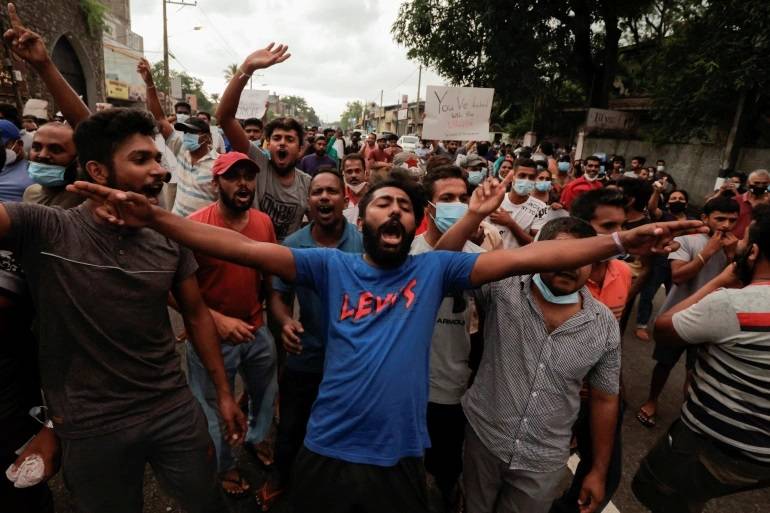Sri Lankan Cardinal: Effective steps needed to deal with economic crisis

Cardinal Malcolm Ranjith urged Sri Lankan political leaders to resign this week and expressed hope that a new government could bring the nation out of its current plight.
The Cardinal said the crowds descending on Colombo was a positive thing and that it led Rajapaksa and Wickremesinghe to announce their resignations.
He said the leadership was forced to announce their intention to resign and show that they had no confidence in them.
However, Cardinal Ranjith expressed doubt that Rajapaksa and Wickremesinghe would follow through on their promise, saying, "Leadership has not been able to keep its promises before, so we are anxiously waiting to see what will happen."
There has been a severe economic and political crisis in Sri Lanka for some time, resulting in high poverty rates and inflation as people struggle to afford food and fuel while essential medicines are becoming increasingly scarce.
Due to the collapse of Sri Lanka's economy, the country depends on aid from India and other countries while its political leadership attempts to negotiate an International Monetary Fund (IMF) bailout.
On July 9, the most chaotic day of months of unrest, people broke into the homes of Rajapaksa and Wickremesinghe and set one of them on fire.
Rajapaksa announced his resignation Wednesday, and Wickremesinghe announced he would step down as soon as a new government was formed.
Cardinal Ranjith says that if people are to trust a new government, "effective steps must be taken to deal with the economic crisis."
According to the cardinal, Sri Lanka's economic crisis has not only resulted from the COVID disaster but also from decisions made by the government, especially in the banking sector, that "have resulted in our foreign reserves dropping below zero, and our gold reserves dwindling drastically."
He said that poor management, planning, and bad decisions made it so Sri Lanka could no longer afford essential services like gas and electricity.
"Now is the time for the right leaders to step forward and make the necessary decisions, " the Cardinal said.
The cardinal said the Catholic Church had served those most in need during the crisis through its diocesan Caritas network, with a bit of help from international Caritas branches as well.
Through Caritas, the church in Sri Lanka has set up programs to find and help the poorest families in its dioceses, as well as to give short-term help to self-help programs that help them grow the food they need.
Cardinal Ranjith said leaders from the Catholic Church, Buddhism, Hinduism, and Islam would work together to help the people. They will also work closely with any new government to keep social harmony and peace.
Former Sri Lankan President Maithripala Sirisena has warned that a power-hungry group is gradually destroying the country and that the armed forces must protect the people engaged in the struggle and the Sri Lankan population.
When there were protests, he told the Inspector General of Police and the Commanders of the three armed forces to be calm and not use weapons. The President and the Acting President have no power to do anything.
In addition, he urged citizens not to destroy state property.
Hemantha Perera/Sinhala
Radio Veritas Asia (RVA), a media platform of the Catholic Church, aims to share Christ. RVA started in 1969 as a continental Catholic radio station to serve Asian countries in their respective local language, thus earning the tag “the Voice of Asian Christianity.” Responding to the emerging context, RVA embraced media platforms to connect with the global Asian audience via its 21 language websites and various social media platforms.














